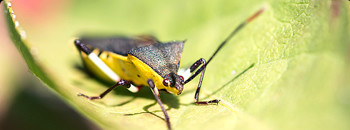Mosquitoes are not creatures most people are eager to celebrate, but the effective control of the biting insects is a cause for celebration. For the past 14 years, the American Mosquito Control Association (AMCA) has recognized National Mosquito Control Awareness Week, which is June 20-26 this year. As a pest that can carry harmful disease, it’s important that we stay up to date and educated about mosquitoes and what can be done to control them.
People around the country are gearing up for the week ahead with community-wide events. The Fairfax County Health Department in Fairfax County, VA, encourages residents to take a proactive approach to controlling mosquitoes in the community and guarding against bites.
New Jersey’s Morris County already has a surveillance system in place to monitor adult mosquitoes and disease prevalence and a water management program in place that works to reduce mosquito habitats. In addition, Morris County control efforts include stocking ponds and isolated permanent pockets of water with small aggressive top feeding minnows known as Mosquitofish to control the egg population and throughout the week, the Mosquito Commission will have a display at the library from June 21 to June 25 highlighting its programs and control efforts.
In Chattanooga, they respect the AMCA’s goal to educate the general public about the significance of mosquitoes in their daily lives and as a result are participating by hosting displays, lectures, demonstrations and educational programs for children in addition to other special events.
Here are a few things you may not have known about mosquitoes:
- A mosquito’s primary food source is not blood, but nectar or a similar sugar source.
- There are more than 2,500 different species of mosquitoes, 200 of which live in the United States with 77 species in Florida.
- The use of the word “mosquito” comes from the Spanish word for “little fly.”
- Mosquitoes prefer to lay eggs in water sheltered from the wind by grass and weeds.
- Mosquito larvae, commonly called “wigglers,” live in water from four to 14 days depending on water temperature.
- Most species will only travel 1 to 3 miles in their lifetime, though some have been known to migrate up to 100 miles.
- Females are the only ones who bite, they need the blood so that their eggs can mature prior to laying.
- Mosquitoes are attracted to smelly feet, Limburger cheese and dark clothing.
- Woman attract mosquitoes more than men and blondes tend to be more attractive to mosquitoes than brunettes.
- In one study, a full moon increased mosquito activity 500 percent!
Check back every day this week as we celebrate National Mosquito Control Awareness Week. We’ll cover everything from mosquito-borne illnesses, what communities are doing to control mosquito populations and what you can do in your own home to protect your family from these pests.

